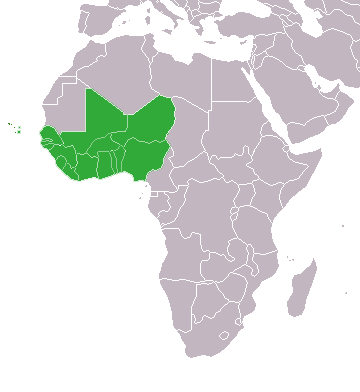The countries of West Africa should make solar PV the “prime source” in their future energy systems as they decarbonize in the decades leading up to 2050, according to a newly published study by a team of researchers in Finland.
The Economic Community of West African States (ECOWAS) needs to substantially ramp up generating capacity over the next three decades to keep pace with an anticipated surge in electricity demand. But there is no need for member states to build new nuclear plants and coal-fired facilities, as solar PV is ideally positioned to serve as the “prime source” of the region’s future energy mix through 2050, said researchers from LUT University in Lappeenranta, Finland.
In particular, hybrid PV battery systems will be the most affordable option to ECOWAS through 2050, according to researchers from LUT University in Lappeenranta, Finland.
“The ECOWAS energy policy should place solar PV at its core. Hybrid solar PV-battery power systems appear the least-cost solution for the region,” the researchers said in a new paper published in the Renewable Energy journal. “A strong transmission grid infrastructure can enable substantial wind electricity generation from Niger and Mali, which can further reduce the entire energy system [levelized cost of energy] of West Africa.”
No subsidies
The researchers claimed that the ECOWAS region can facilitate “substantial” renewables deployment in the decades ahead without the need to rely on state funding. They claimed that renewables offer the “least-cost option for the West African power system without subsidies.” The paper argues in favor of a regional policy framework that minimizes investments in conventional power plants, backed by “comprehensive energy market reforms” and “ambitious” long-term targets for renewables deployment.
They drew their conclusions using linear optimization modeling to determine the best generation mix for the region in terms of cost, in order to meet energy demand across five-year intervals. They designed six different theoretical scenarios as part of what they claim is the first such long-term study of the West African power sector.
Under their “best policy scenario” leading up to 2050, they foresee solar PV potentially fulfilling 81–85% of total energy demand by 2050. They also expect the cost of electricity in the region to drop from €70/MWh in 2015 to €36/MWh by 2050 with interconnection, and to €41/MWh without interconnection under their best policy scenario.
Electricity access
At the moment, roughly half of the people living in the ECOWAS region do not have reliable access to electricity, the researchers said. In some countries – Niger, Guinea-Bissau, Liberia, and Sierra Leone, for example – the electrification rate was below 40% in 2016, they added, noting that this imposes a serious restraint on socio-economic development. And with regional electricity demand set to jump by roughly five times over the current decade to 250 TWh, the need for long-term energy system planning is now more pressing than ever.
The researchers concluded that their modeling clearly illustrates two “distinctive” elements of the region’s future electrical system: transition and expansion. And that, they argued, will require regional policymakers to exploit all available renewable-energy resources, from solar PV and wind to biomass and hydropower.
The LUT University study backs a late-2018 report by the International Renewable Energy Agency (IRENA) showing that West Africa has the potential to deploy up to 20 GW of solar by 2030. It said that it expects a minimum of 8 GW of PV capacity throughout the 15 ECOWAS countries by the end of the current decade, with Nigeria, Ghana and Côte d’Ivoire to lead regional growth.
Earlier this month, Benin secured a $21.1 million loan from the ECOWAS development bank to build solar arrays throughout the tiny nation. Burundi also obtained a $160 million donation from the World Bank to deploy PV systems.
This content is protected by copyright and may not be reused. If you want to cooperate with us and would like to reuse some of our content, please contact: editors@pv-magazine.com.



This’s Very wonderful Information, I mean Solar Energy for ECOWAS Market. We Citizens hope that Govt of ECOWAS, will work to see this Idea come true. I spoke about a Solar Cooker/Hot Plate… Which is Installed in our Kitchens and Uses the Solar Panel to tap Energy From the Sun……